Climate
-
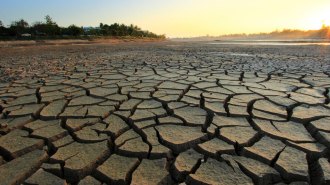 Climate
ClimateClimate change made a southwestern U.S. drought one of the worst in 1,200 years
Tree ring records show that the 2000–2018 drought in southwestern North America is among the most severe to strike the region in over a millennium.
-
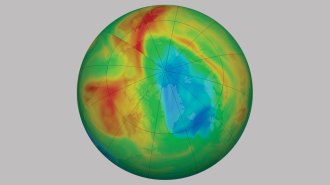 Climate
ClimateThe largest Arctic ozone hole ever measured is hovering over the North Pole
A strong polar vortex in early 2020 led to what may be a record-breaking hole in the ozone layer over the Arctic.
-
 Earth
EarthRoughly 90 million years ago, a rainforest grew near the South Pole
A forest flourished within 1,000 kilometers of the South Pole, probably because of high atmospheric carbon dioxide levels and an ice-free Antarctica.
-
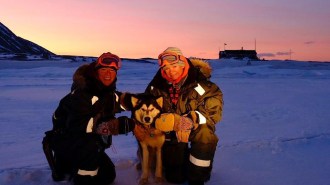 Climate
ClimateThese women endured a winter in the high Arctic for citizen science
Two women have spent the winter on the Norwegian archipelago of Svalbard to collect data for climate scientists around the world.
-
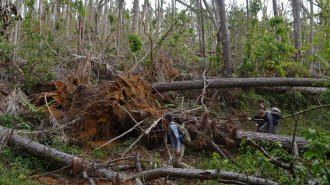 Climate
ClimateHow Hurricane Maria’s heavy rains devastated Puerto Rico’s forests
Hurricane Maria wreaked havoc on Puerto Rican forests in some unexpected ways.
-
 Climate
ClimateAustralia’s wildfires have now been linked to climate change
Australia’s devastating 2019–2020 wildfires were at least 30 percent more likely due to human-caused climate change.
-
 Climate
ClimateOrdering from a local store can curb online shopping’s CO₂ emissions
Online shopping isn’t necessarily better for the environment than going to the store in person, a new study finds.
-
 Climate
ClimateHow scientists wrestle with grief over climate change
With climate change altering our world at an increasing pace, scientists who monitor and study nature are frustrated and grieving.
-
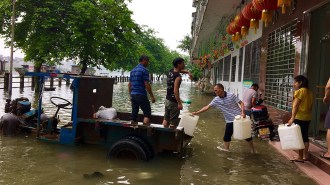 Climate
ClimateEconomic costs of rising seas will be steeper than we thought, unless we prepare
A study estimates 4 percent in annual global GDP losses by 2100 due to sea level rise, unless people curb emissions and prepare for flood risks.
By Megan Sever -
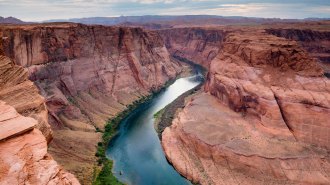 Climate
ClimateClimate change is slowly drying up the Colorado River
Annual water flow in the Colorado River decreased by over 11 percent due to warming in the 20th century, a new study estimates.
-
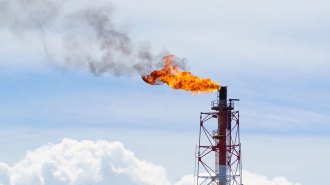 Climate
ClimateFossil fuel use may emit 40 percent more methane than we thought
Ice cores suggest natural seeps release less methane than was estimated, meaning industry produces nearly all of today’s geologic methane emissions.
-
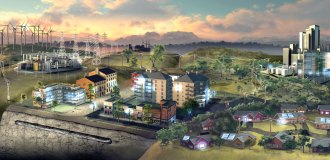 Tech
TechThe U.S. power grid desperately needs upgrades to handle climate change
The climate is changing faster than the U.S. power grid is adapting. Smarter grids and smaller grids could help.